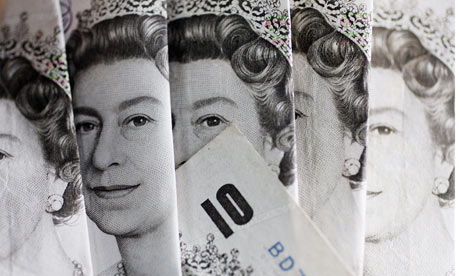
You are persuaded to buy unemployment insurance "for peace of mind" when you take out your mortgage. It costs you, say, around £25 a month. You pay it year in, year out. Then, just when it starts to offer real protection – because jobs are being cut – the insurer shoves up the premiums or withdraws it.
Last August, the FSA chairman Lord Turner described much of what the City does as "socially useless". It's a phrase that, in the personal finance field, should be plastered over every payment protection "product".
It is now six years since Guardian Money first revealed the scale of the protection racket.
We revealed how banks made profits of up to 80% on PPI premiums. Our investigation also uncovered documents showing Barclays earned 10% of its global profits in 2001 from the sale of PPI. Analysts calculated that between 2001 and 2006, Alliance & Leicester, Lloyds TSB and Barclays regularly made more than 10% of their profits from the sale of the product.
It prompted the FSA to begin investigating the industry, and in 2006 it levied fines for mis-selling PPI sold against personal loans. Several lenders have been penalised, including Alliance & Leicester, which received a record £7m fine.
But this ropy old trade still goes on. Last October, Which? found that just 28% of premiums collected on mortgage PPI (also called accident, sickness and unemployment insurance) are paid out in claims. Profit margins evidently remain just too juicy to ignore. Yet, not content with having gouged consumers for years when unemployment was low, now that it's rising, banks bare-facedly push up premiums for mortgage-based PPI because they might possibly have to pay out a little more money. This is like selling you an umbrella, but then when it rains, asking for it back.
Don't throw Rock back into the deep
Banks and financial services won't just go back to "business as usual", Alistair Darling said this week, in a budget that promised Labour won't just be tough on banks, it will be tough on the causes of banks, too. So why does the chancellor remain wedded to returning Northern Rock and Bradford & Bingley to the stock market?
In his speech, he said: "We will sell our shares in RBS and Lloyds, as well as Northern Rock, in a way that maximises value for the taxpayer and recoups the money we invested."
The case for returning RBS and Lloyds to the market, and for taxpayers to cash in, is pretty strong. But Northern Rock?
Firstly, we're not going to make much money from the flotation, as its short-term profit prospects aren't salivating enough for City speculators.
But more importantly, Northern Rock presents an opportunity to really ensure that the future of financial services isn't just "business as usual".
Remember, it was once a vibrant regional mutual before it floated on the stock market and subsequently engaged in an orgy of wholesale borrowing and ludicrous lending practices. That helped its managers earn big bonuses and its short-termist shareholders hit their stock price targets. But as a model for a domestic bank serving a retail audience, it failed completely.
We should be using this period to explore new organisational models through which we deliver savings and loans. There's mutuality (building societies), partnership (a bank run along the lines of John Lewis?), cooperatives (Co-op Bank) and credit unions. Shoving the Rock back on the stock market is short-term thinking – which is how we got into this mess in the first place.







